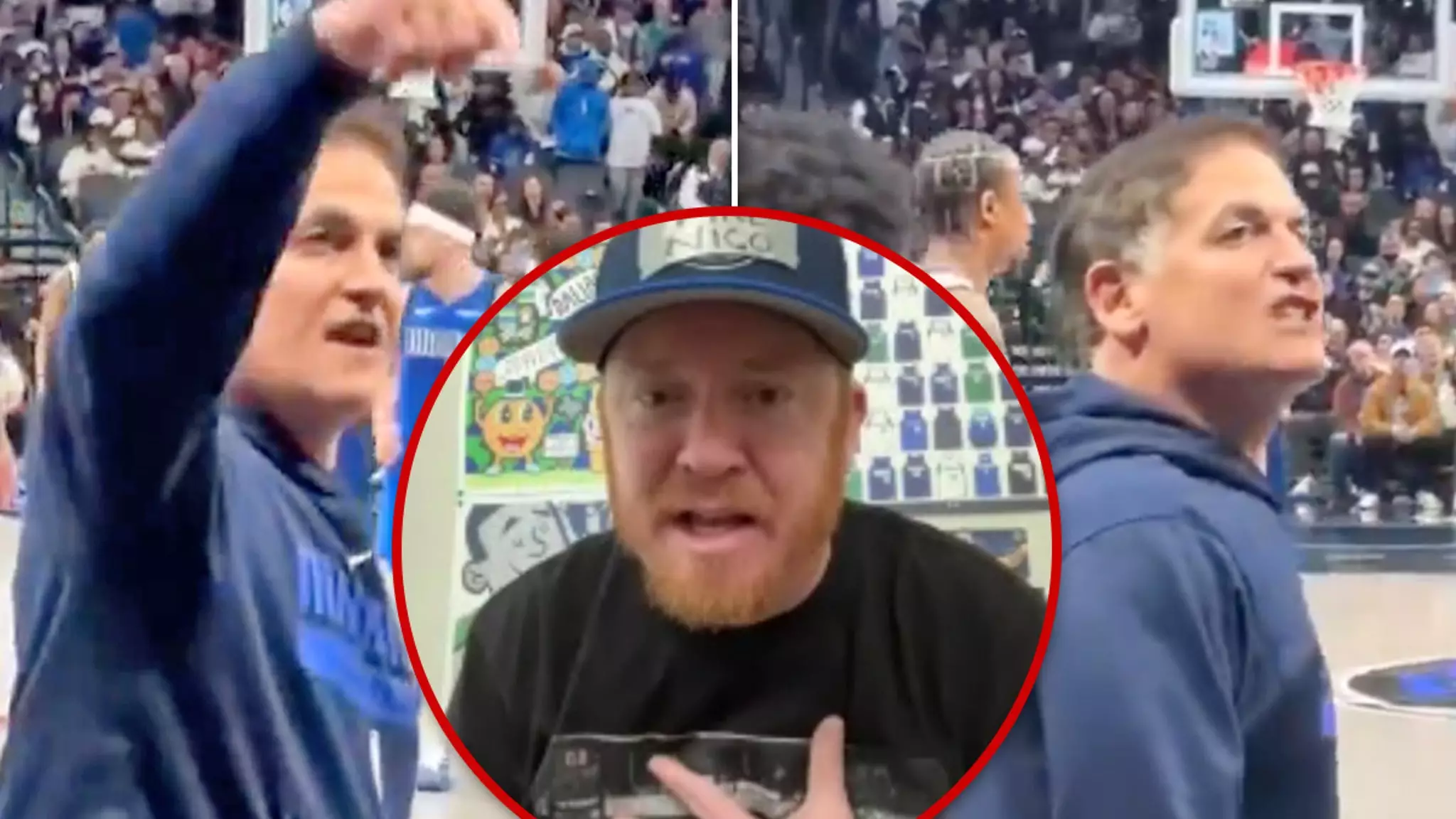In recent NBA news, an incident at the American Airlines Center has reignited conversations about fan rights and the responsibilities of franchise owners. Chris Taylor, a passionate Dallas Mavericks fan, found himself at the center of controversy after he was escorted out of a game due to a confrontation with Mavericks owner Mark Cuban. The incident occurred during a matchup against the Sacramento Kings, where tension escalated over a chant aimed at the Mavericks’ general manager, Nico Harrison. This altercation raises various questions about the nature of accountability and freedom of expression within sports arenas.
Taylor’s dissatisfaction stemmed from recent roster decisions, particularly the controversial trade of star player Luka Doncic to the Los Angeles Lakers. Frustrated with what he perceived as mismanagement, Taylor attempted to rally the crowd against Harrison’s decisions. This disruptive effort caught Cuban’s attention, leading to a direct confrontation where Cuban reportedly asked Taylor to cease his chants. Unfortunately, the situation quickly spiraled, culminating in security personnel removing Taylor from his seat.
While the Mavericks organization characterized Taylor’s behavior as “disruptive and uncooperative,” he vehemently contested this narrative, arguing that it was Cuban who overstepped boundaries. Taylor reported feeling threatened and discriminated against by security, highlighting a common concern among fans about their treatment in such high-stake environments. This incident exemplifies the delicate balance that security teams must maintain between ensuring a lively atmosphere while also upholding the comforts and rights of every attendee.
In the aftermath of the altercation, Taylor expressed that he might pursue legal options to defend his rights as a fan, citing feelings of bullying and intimidation. With statements like, “Do you want to walk out, or get dragged out?” he underlined the severity of how security addressed the situation. The very idea of legal action serves as a potent reminder of the fine line between maintaining order and infringing upon personal liberties during sporting events.
Taylor’s plight has ignited discussions surrounding the NBA Fan Code of Conduct, which aims to foster a positive environment by prohibiting disruptive behaviors. However, this incident raises pertinent questions regarding subjective interpretations of what constitutes “disruption.” Engaging in dialogue about team management and roster changes should arguably be within a fan’s right, creating a need for more nuanced policies that protect both the integrity of the game and the voices of those who support it passionately.
Beyond the immediate circumstances of this incident, this situation invites broader discussions about fan engagement. In recent years, professional sports teams have increasingly marketed themselves as being in touch with their supporters. This narrative, however, can quickly collapse when fans feel stifled or belittled for expressing their opinions, especially when the discussion pertains to crucial elements of team management. Followers of the Mavericks now find themselves at a crossroads, wondering whether their voices matter in the grand tapestry that is professional basketball.
As Taylor prepares to return to Mavericks games later this month, it is yet unclear how this experience will shape the future of fan interaction with the team. One thing is certain: this incident will serve as a reminder of the ongoing negotiations between franchises and their loyal supporters, underscoring the vital role that fan experience plays in the culture of professional sports.

